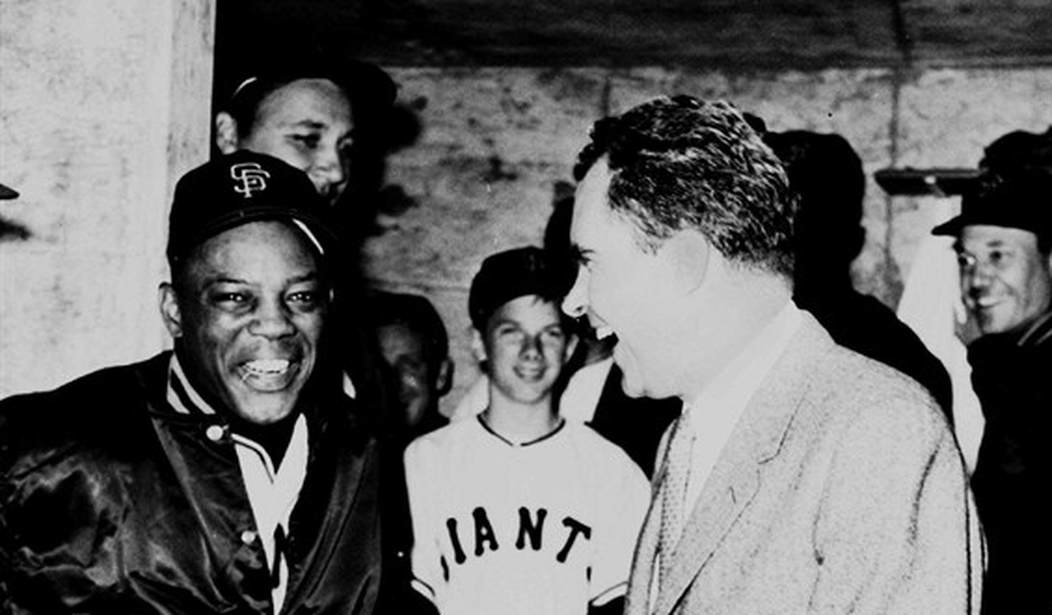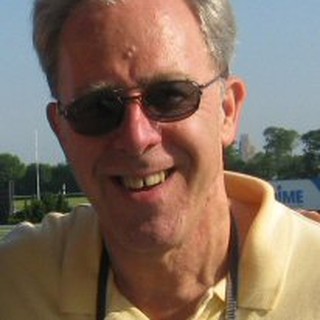Willie Mays is dead at 93. An outfielder for the New York and later San Francisco Giants, he is probably the last universally loved and admired sports figure in the pantheon of America's great athletes. Nicknamed "the Say Hey Kid," he was even admired by his rivals. In the 1950s and '60s era of great slugger competitions, he stood out in all aspects of the game.
In the 1950s, with three major league teams in New York City, a press rivalry began among three Hall of Fame slugging outfielders, Duke Snider of the Brooklyn Dodgers, Mickey Mantle of the Yankees, and Mays of the New York Giants. Yankee outfielder Mickey Mantle later said that while he may have gotten some good press, it was Mays who was the best ball player. Mantle felt he never lived up fully to his potential the way Mays had. It was ironic that in the 1951 World Series, Mantle twisted his knee in an open drain pipe at the Polo Grounds on a hit by Mays. The injury would plague Mantle for the rest of his career.
Setting numerous records, Mays played 24 seasons in the major leagues, with time out for military service during the Korean War. "Willie Mays was the best player I ever saw. He did everything well," said sportscaster Curt Gowdy.
Various polls have ranked him second behind Babe Ruth. When Mays was not unanimously inducted into the Baseball Hall of Fame in 1979, New York sports writer Dick Young wrote, "If Jesus Christ were to show up with his old baseball glove, some guys wouldn't vote for him. He dropped the cross three times, didn't he?"
With 3,293 hits, Mays batted a career average of 302. In all he had 660 home runs, 2,062 runs scored, 1903 runs batted in, and he stole 338 bases. He played 2,992 games, putting him in the top 10, and was a record 12-time winner of the Gold Glove Award, tied with Roberto Clemente. He had a record 7,095 put-outs in the outfield and is up there with Ty Cobb in the number of games played in the outfield. He holds numerous All-Star game records, having played in the game 24 times, tied for second of any player.
Mays was born in Jefferson County, Ala., where his father played for a local steel mill industrial league team. An all-around athlete in high school, Mays played football and basketball, leading the league in scoring. While in high school, he began playing in the Negro League, eventually landing with the Birmingham Black Barons, where he only played home games at Rickwood Field so he could stay in high school. In an interesting coincidence, the Giants are scheduled to play a game in the refurbished Rickwood Field, America's oldest ball park, tomorrow. Mays sent a note a few days ago saying he was too ill to attend.
While many considered recruiting Mays, it was the Giants who finally signed him in 1950. He would stay with the Giants until he was traded in 1972 to the Mets. A sentimental favorite of the New York fans, he played two seasons and stayed on there until 1979 as their hitting coach.
When he lived in the Sugar Hill section of Harlem near the Polo Grounds, neighborhood kids would knock on his door and ask him to play stickball with them. The ever-friendly Mays would oblige.
As a young player in the minor league, Mays felt he wasn't ready for major league hitting. He tried to talk Giants manager Leo "The Lip" Durocher out of moving him up to the big leagues. Durocher eventually lost his patience with Mays's repeated phone calls. "Quit costing the ball club money with long-distance phone calls and join the team," Durocher barked. Because Mays liked to say "hey" to everyone, it was Durocher who named him "the 'Say Hey' kid".
Despite criticism from some ball players, Mays avoided politics, activism, and bitterness over situations he experienced, such as those he grew up with in Birmingham. He felt he could do the most good on the field. "I'm a ballplayer. I am not a politician or a writer or a historian. I can do best for my people by doing what I do best."
Related: The College World Series Starts Friday! Here's a Preview
The only controversy he experienced came after his playing days. Both involved my family's friend, Baseball Commissioner Bowie Kuhn. In 1975, Kuhn intervened to save Mays's job when the Mets tried to fire him as hitting coach. But in 1979, Kuhn banned Mays from Major League Baseball. Despite opposition from the commissioner, Mays decided to take a job at an Atlantic City Casino as a greeter and special assistant to the president. Ever since New York gangster Arnold Rothstein fixed the 1919 World Series, baseball had been allergic to any hint of gambling. In 1985, both Mays and Mickey Mantle, who had made a similar career choice, were reinstated to baseball. Today, baseball has accepted gambling, and sports betting is legal in many jurisdictions.
Mays will be remembered for his competitive grace on the field. "My style was always to go all out, whether I played four innings or nine," he said. But who can ever forget his infectious joy for the game? As he said in the press conference announcing his retirement, "I thought I'd be crying by now, but I see so many people here who are my friends, I can't… Baseball and me, we had what you might call a love affair."










Join the conversation as a VIP Member